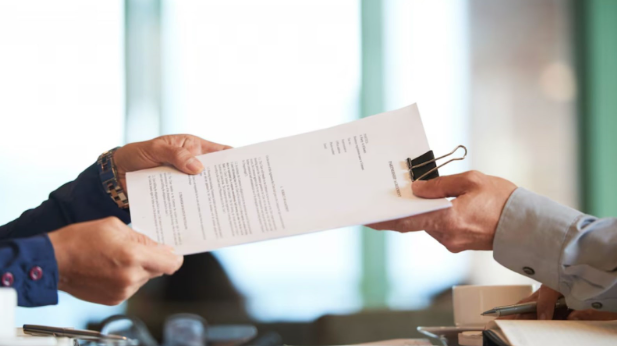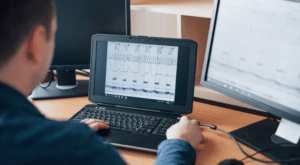Previously, threats to national security predominantly came from external actors. However, these dangers now originate domestically, be it from undocumented immigrants, asylum seekers, or even naturalized citizens.
Threats to national security are exemplified by a recent incident, in which a naturalized US citizen was charged with immigration fraud after months of investigation. Findings further uncovered that the suspect had participated in terrorist attacks.
Who knows what evil they were planning in the meantime?
It’s in light of increasing threats to national security that law enforcement agencies are now implementing more stringent screening protocols for aspiring US immigrants and tourists. Central to those efforts are polygraph tests.
Read on as we delve into the significance of polygraphs in supporting national security and government contracts.

Ways Polygraph Tests May Support National Security
1. Early Threat Detection
Detecting threats before they escalate is the key to upholding national security.
A lie detector test can enable law enforcement officers to gain insights into an individual’s lifestyle and past actions, including their criminal history. They’re then able to narrow down on people that may significantly jeopardize national security.
For instance, an asylum seeker from a nation deemed as hostile to the United States may need to undergo robust polygraph testing to establish their allegiance to their erstwhile country.
2. Investigating Criminal History
Pre-employment polygraph testing is now a best practice in numerous organizations. For those seeking employment in government security agencies, undergoing polygraphs is almost always mandatory.
Polygraphs allow potential employers to delve into an individual’s criminal past to uncover character flaws that may be exploited by malicious actors. Test findings can validate claims of ties to terrorism, money laundering, or religious fundamentalist groups.
3. Deterring Espionage
The US government has introduced a raft of counterespionage protocols over the years, and polygraph testing is slowly becoming a mainstream practice in this domain. Federal agencies are particularly wary about sharing classified information with persons of questionable allegiance.
Through polygraph testing, law enforcement officers can vet individuals likely to disclose state secrets to our military or trade adversaries. Having federal employees and contractors undergo regular polygraph testing can serve as a deterrent against espionage activities.

Security Agencies Where Polygraph Testing Is Common Practice
All state agencies have incorporated polygraph testing into their screening procedures, albeit in varying scopes.
These exams are commonly administered by the FBI, CIA, DEA, NSA, DoD, Corrections, and Border Patrol.
Most of these agencies outsource polygraph testing services. They’ll typically seek out qualified examiners, prioritizing those with considerable experience in the law enforcement sector.
Actioning Polygraph Findings
Polygraph reports aren’t merely used to identify potential threats to national security. Law enforcement agencies may rely on these findings, alongside other pieces of evidence, to institute criminal lawsuits against the subject. This provides extra deterrence against characters who could be considering infiltrating security agencies to orchestrate criminal acts.
However, certain conditions must be satisfied for polygraph tests to be admissible in law courts.
First off, findings from polygraph testing can only be allowed where an individual’s credibility has been severely attacked.
For instance, law enforcement agencies may argue that an individual was attempting to bypass immigration laws despite being fully cognizant of due procedures. And after polygraphing them on their criminal history, examiners uncovered a pattern of deception. In this instance, polygraph findings may help to corroborate claims of False and Willful Misrepresentation.
Besides, a polygraph examinee must be notified of the intentions to have them polygraphed, and they must willfully consent to the test.
Improving the Accuracy of Polygraph Tests
Conducting accurate polygraph tests is imperative for law enforcement agencies. It’s the surest way to minimize false positives or false negatives, as was the case with Agent Aldrich Ames.
Despite spying for the Soviet Union and Russia, Ames managed to pass periodic polygraph examinations for years before his eventual arrest in 1994.
To avoid such incidents, all polygraphs should be conducted by licensed polygraphers with practical industry experience. Note that various US states require polygraph examiners to be licensed before practicing, with requirements varying depending on jurisdiction.
Moreover, law enforcement examiners must comply with regional licensing requirements and be up to date on other critical procedures required by the agency they’re working for.
Addressing Security Threats Through Polygraph Tests
National security is not a public relations exercise. Therefore, law enforcement agencies must pull out all the stops to ensure the safety of US citizens.
Polygraphs have proven to be an invaluable tool for identifying individuals who might pose legitimate risks to US national security, either by orchestrating direct terrorist attacks or through covert maneuvers like espionage.
Polygraph testing may also be administered to aspiring federal contractors to assess their ability to safeguard classified information before qualifying them for tenders. It’s a proactive way to ascertain that all custodians of state secrets are free from duplicity and divided allegiance.






